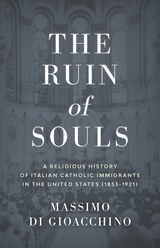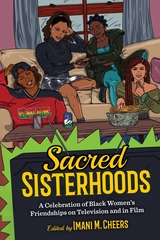6 start with F start with F
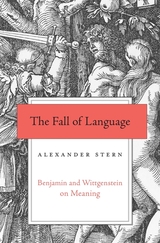
In the most comprehensive account to date of Walter Benjamin’s philosophy of language, Alexander Stern explores the nature of meaning by putting Benjamin in dialogue with Wittgenstein.
Known largely for his essays on culture, aesthetics, and literature, Walter Benjamin also wrote on the philosophy of language. This early work is famously obscure and considered hopelessly mystical by some. But for Alexander Stern, it contains important insights and anticipates—in some respects surpasses—the later thought of a central figure in the philosophy of language, Ludwig Wittgenstein.
As described in The Fall of Language, Benjamin argues that “language as such” is not a means for communicating an extra-linguistic reality but an all-encompassing medium of expression in which everything shares. Borrowing from Johann Georg Hamann’s understanding of God’s creation as communication to humankind, Benjamin writes that all things express meanings, and that human language does not impose meaning on the objective world but translates meanings already extant in it. He describes the transformations that language as such undergoes while making its way into human language as the “fall of language.” This is a fall from “names”—language that responds mimetically to reality—to signs that designate reality arbitrarily.
While Benjamin’s approach initially seems alien to Wittgenstein’s, both reject a designative understanding of language; both are preoccupied with Russell’s paradox; and both try to treat what Wittgenstein calls “the bewitchment of our understanding by means of language.” Putting Wittgenstein’s work in dialogue with Benjamin’s sheds light on its historical provenance and on the turn in Wittgenstein’s thought. Although the two philosophies diverge in crucial ways, in their comparison Stern finds paths for understanding what language is and what it does.
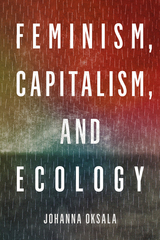
In the face of ecological catastrophe, neither feminists nor environmentalists have the option of merely supporting an environmental politics that would preserve an imagined nature somewhere outside capitalism. As Johanna Oksala contends, the political goal must be more radical: to challenge the capitalist economic system itself and the mechanisms by which it expropriates life on the planet.
Feminism, Capitalism, and Ecology lays the critical groundwork for this political project. It develops a new way of bringing feminist and ecological responses to capitalism together into a cohesive framework. By exposing the systemic logic by which environmental destruction and gender oppression are jointly rooted in capitalism, Oksala establishes the theoretical foundations for an effective political alliance. The traditions of materialist ecofeminism and Marxist feminism are critical starting points. But the rapid rise of biotechnology and the steady increase of precarity necessitate a model of resistance that responds to the distinctive challenges of contemporary biocapitalism. Timely and urgent, this book articulates a theoretically sophisticated response and maps out our real-world options in this existential struggle.

A philosophical exploration of how modern global cinema represents everyday means of resisting authoritarianism and totalitarianism
Václav Havel’s concept of “living within the truth” in an authoritarian regime frames Marguerite La Caze’s readings of international cinema, highlighting forms of resistance in which seemingly pre- or nonpolitical aspects of life—such as professional labor, exile, and truth telling—can be recognized as political when seen against a backdrop of general acquiescence. La Caze’s case studies cross genres, historical eras, and national contexts: the apartheid regime in South Africa, in A Dry White Season; post-Suharto Indonesia, in The Look of Silence; 1980s East Germany, in Barbara; the Chilean military dictatorship, in No; contemporary Iran, in A Separation; and current-day Saudi Arabia, in Wadjda. This book explores the films’ use of image, sound, narrative, and character in dialogue with the work of Simone de Beauvoir, Aimé Cesaire, Hannah Arendt, Sara Ahmed, and W. E. B. Du Bois to reveal how cinema depicts ordinary people enacting their own philosophies of defiance.

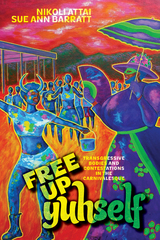
Free Up Yuhself explores and theorizes what it means to embody and be empowered by the chaos of transgression, evaluating the implications for people who destabilize the Caribbean region’s dominant gender and sexuality politics within the Caribbean and the Caribbean diaspora. This book examines how people actively utilize the carnivalesque – spaces of festivity and places of excitement, the extraordinary, the ritualistic – to confront, negotiate, disrupt, and transgress normative trends, boundaries, and perspectives in the Caribbean and Caribbean diaspora communities. This book is particularly concerned with the ways that Caribbean people contest sexual and gendered expectations through their bodily performances across regional and diasporic festival spaces. Through illustrative, analytical, evaluative, and reflective chapters, the collection contemplates the themes of freedom, belonging, acceptance, and recognition as these affect the experience of people’s sense of being. The authors reflect on “freeing up” as a contentious politics, understanding that people have the capacity to enact their freedom through transgressive movements and performances that persistently grapple with notions of respectability, agency, empowerment, disruption, and the meanings and consequences of their varied social and political locations.

READERS
Browse our collection.
PUBLISHERS
See BiblioVault's publisher services.
STUDENT SERVICES
Files for college accessibility offices.
UChicago Accessibility Resources
home | accessibility | search | about | contact us
BiblioVault ® 2001 - 2025
The University of Chicago Press


